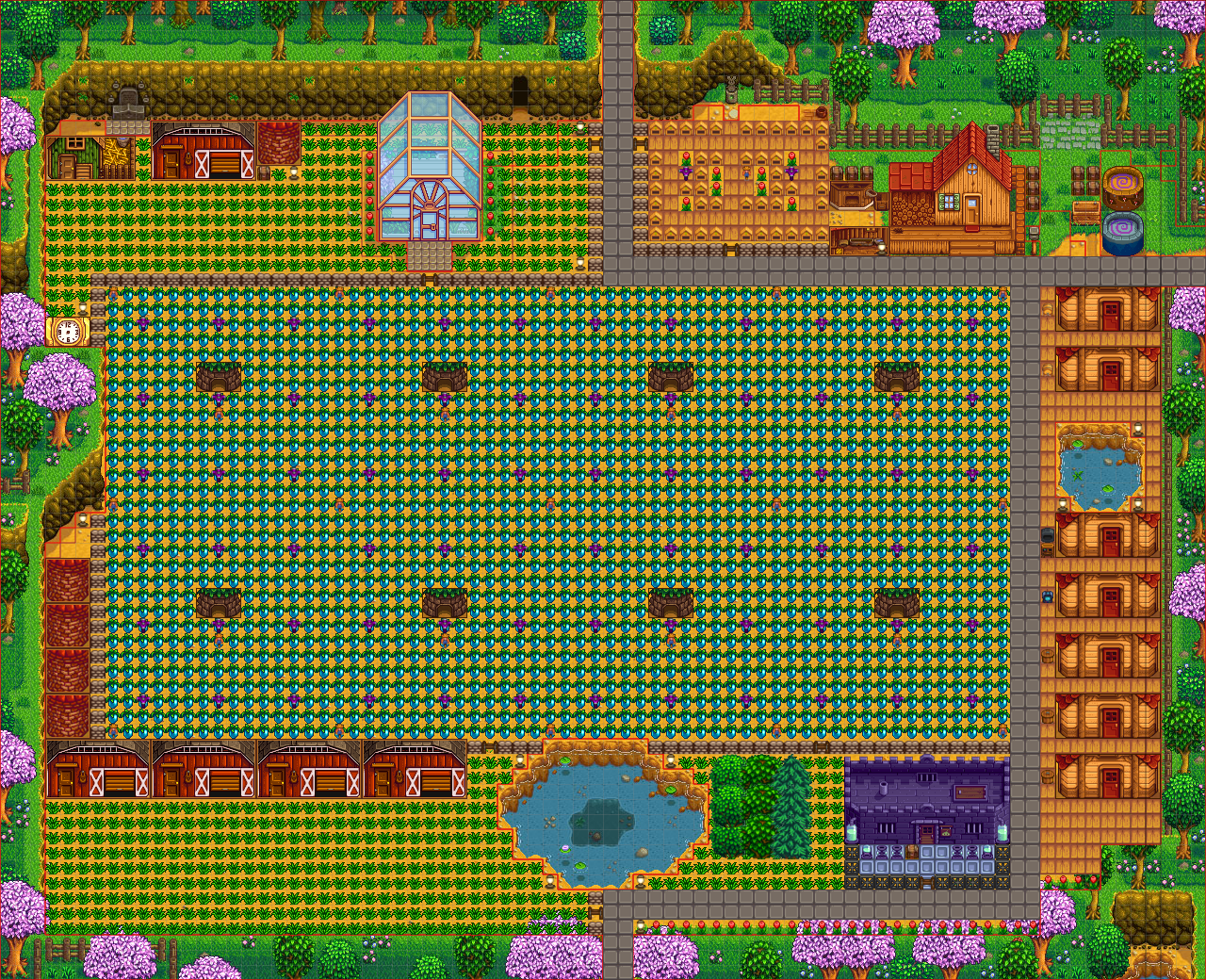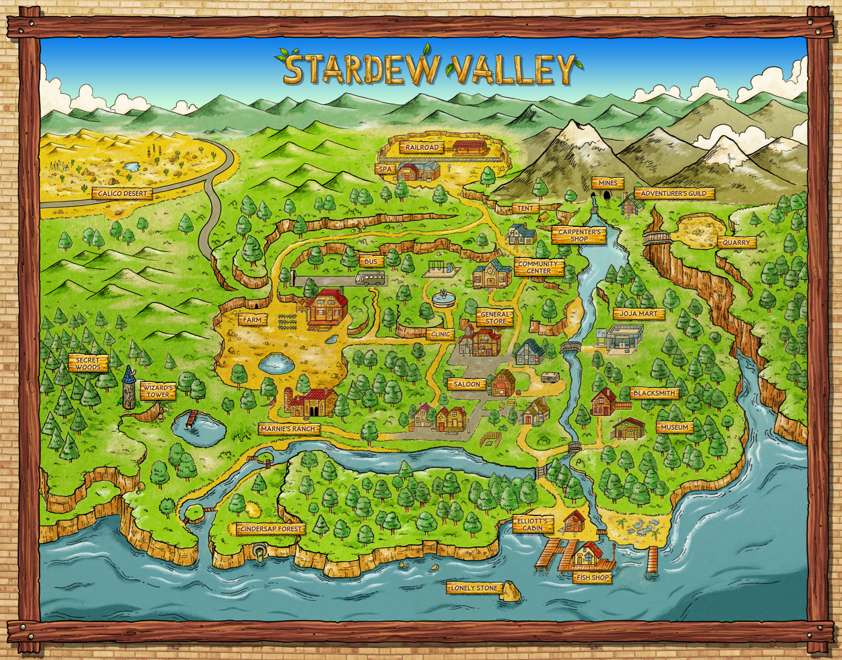
So you get to it. Every day at sunrise, you wake up, plough the earth, plant some seeds, and water them. As you wait for the crops to grow, you catch some fish to sell and mine a few metals so you can craft automatic sprinklers and better tools. These tools make you more efficient. They allow you to plant more seeds, make more money, buy better fertiliser, rear more livestock, until voila!—50 hours has passed and you suddenly find yourself the CEO of Cargill.
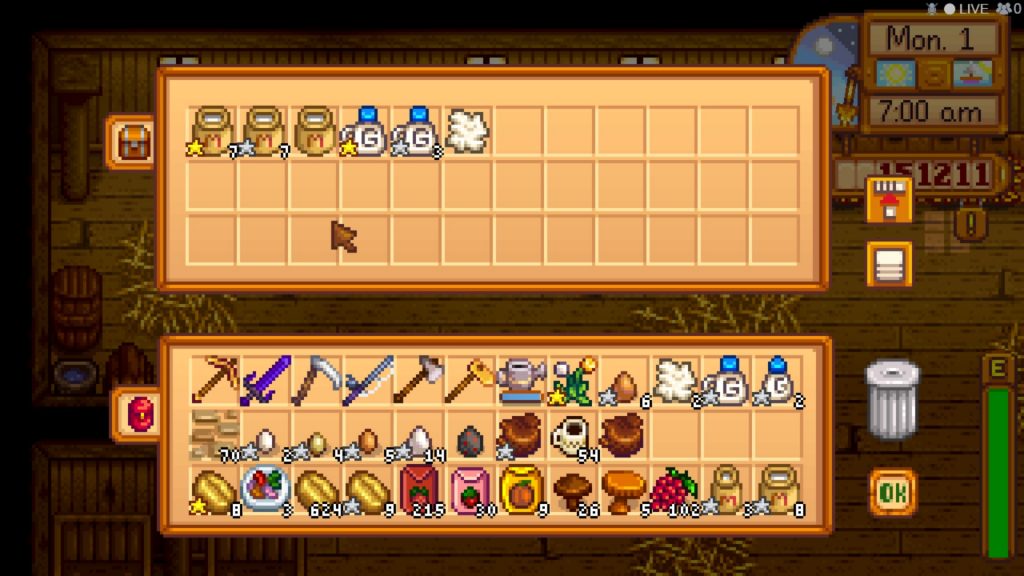
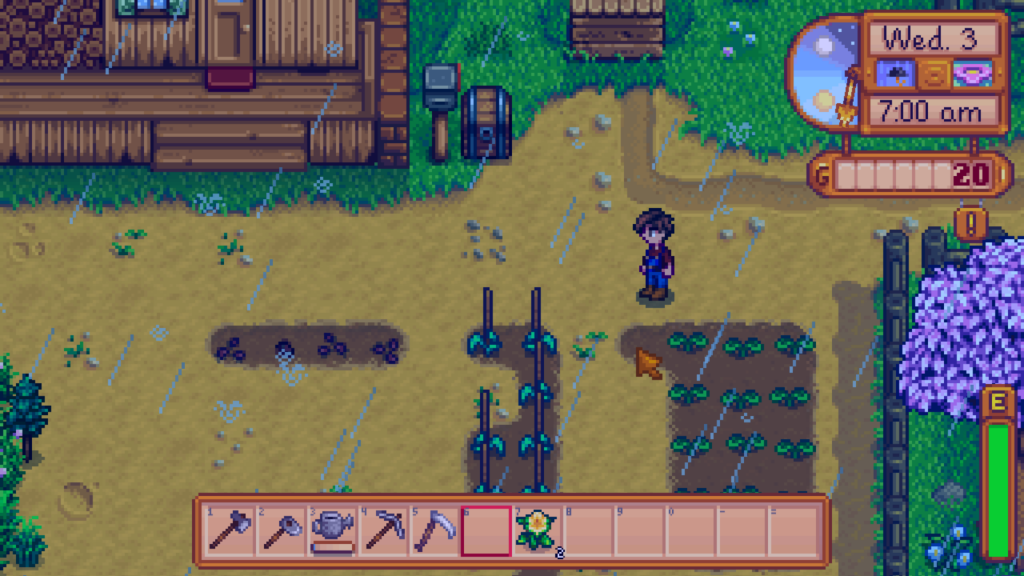
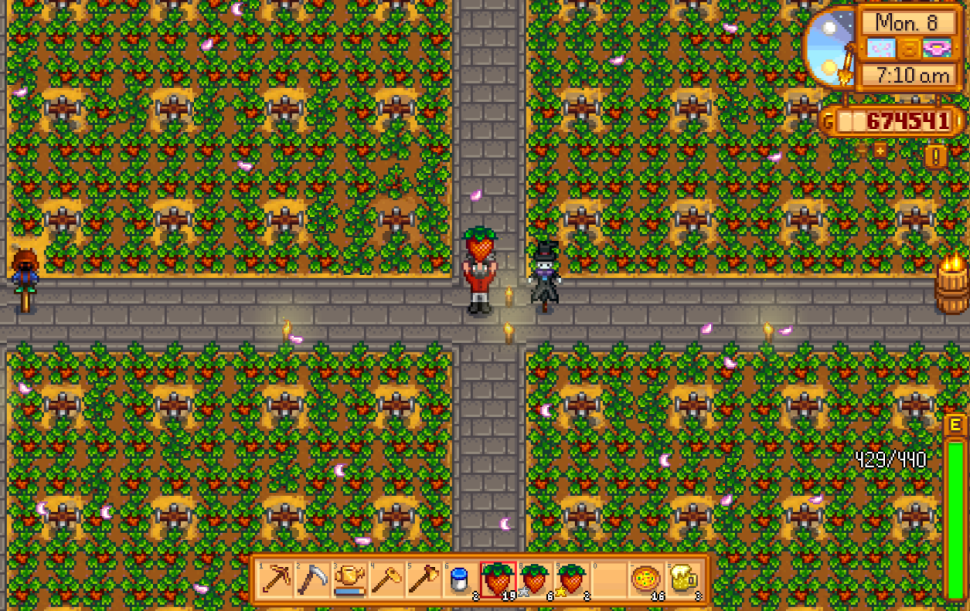
This is what Jeff Bezos must feel when he looks at an Amazon warehouse. This might be also why billionaires continue to accumulate wealth long after they’ve run out of ways to spend that money.
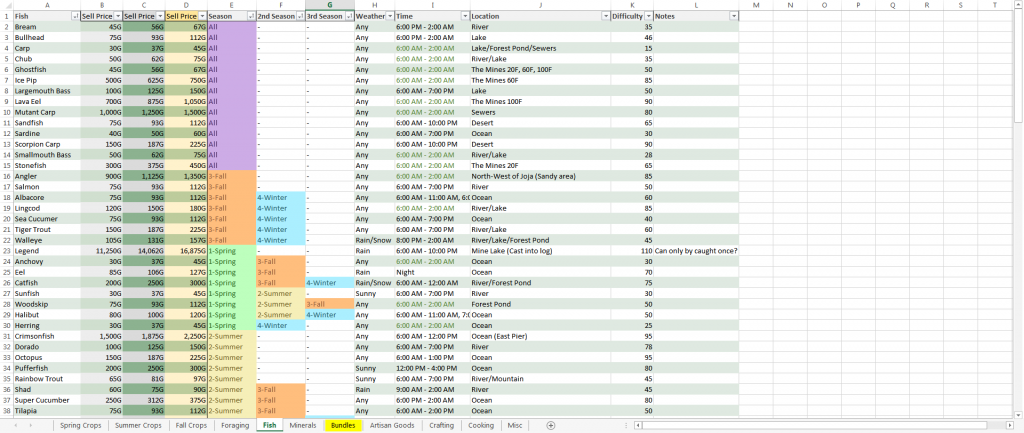
Stardew Valley is perhaps the most ridiculous game ever created. It’s like Animal Crossing meets Adam Smith. The goal of Stardew Valley is production. The reward is more productivity. Crops can be sold for money, but there’s very little to do with your cash. You can either spend it on home decor (like Edward Norton’s character in Fight Club), or more likely, use it to acquire new means of production. (Options include: Hay Silos, Deluxe Barns, Automatic Milking Machines, Fish Ponds, etc)
Sauron is not threatening to invade Stardew Valley, and there are no Nazis to kill. Accumulation is the ultimate goal. When you deliver five gold melons to the magical forest spirits of Stardew Valley (the Juminos), they reward you with a Greenhouse which allows you to produce more melons, all year-round.
Of course, there are other goals beyond production. Stardew Valley has a number of townsfolk you can befriend. Some are even eligible for marriage once you get to know them. However, the means by which you endear yourself to these NPCs is hilariously simple. Basically, everyone will like you if you give them gifts. Some of them like diamonds, while others enjoy wine or turnips. However, no one will like you for your personality. Your partner will not even move in with you unless you spend a quarter of a million renovating your house.
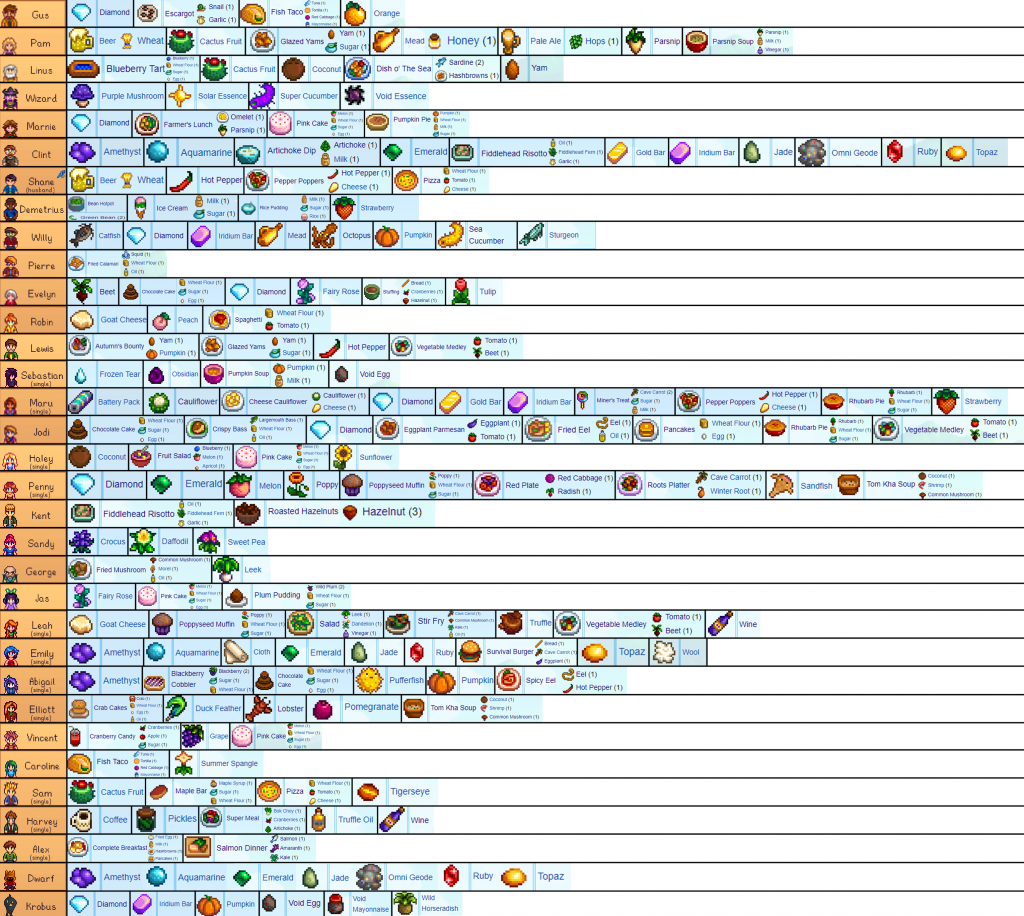
All in all, it’s a very bleak portrait of humanity. Some critics have called the game ‘escapism’, but that’s obviously wrong. What exactly are you escaping from, or escaping into? If the object of the game is to role-play as a farmer free from the pressures of a big city career, then the game has surely failed. To progress in Stardew Valley, one must replicate the same processes that distinguish you as a good employee: long hours, task efficiency, time management, patient planning, and so on.
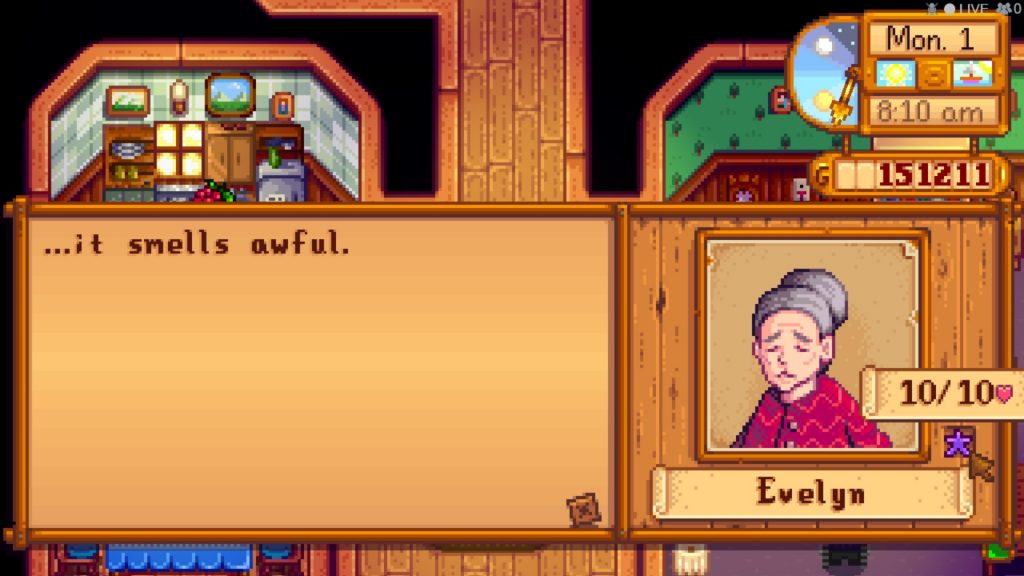
Beneath its cutesy graphics is a utopia, but not the kind where everyone is happy because they have enough to eat or drink. Instead, it is a managerial utopia where the economics always works, the prices never crash, and one always excels by the meritocratic principle. Over time, through the sweat of one’s brow, you will even own the means of production thanks to so many barns and chicken coops.
As such, it is the perfect game to play in this time of economic uncertainty. Singapore is about to enter its worst recession this year. Unemployment is at an all-time high. In the years to come, only god knows how wages and prices will behave. In such circumstances, wouldn’t it be nice to live in a community where hard work is justly rewarded and where it’s possible to climb up the socioeconomic ladder, if only you would toil just a little harder in that melon patch?

